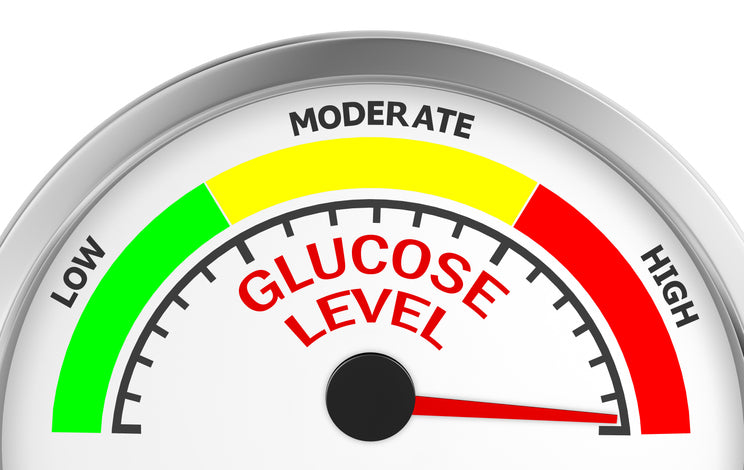The Surprising Impact of Instant Oatmeal on Blood Sugar
For years, oatmeal has been celebrated as a wholesome, fiber-rich food that can be part of a healthy diet, particularly for those managing their blood sugar levels. However, when it comes to instant oatmeal, the story is quite different.
What Happens to Your Blood Sugar When You Eat Instant Oatmeal?
Instant oatmeal is often marketed as a quick and convenient option for a healthy breakfast. However, the processing that makes it "instant" changes its impact on your blood sugar. Instant oatmeal is pre-cooked and dried, which leads to a higher glycemic index. This means it can spike your blood sugar much faster than traditional oats (1).
A study published in the "Journal of the American College of Nutrition" found that the glycemic response to instant oatmeal was significantly higher than that for steel-cut oats (2). The body digests instant oatmeal more quickly, leading to a quicker and higher spike in blood sugar levels shortly after consumption.
The Role of Fiber in Instant Oatmeal
One reason for this difference is the fiber content. The processing of instant oatmeal reduces its fiber content, especially the soluble fiber beta-glucan, which is known for its blood sugar stabilizing effects (3). Soluble fiber forms a gel-like substance in the gut, which slows down the digestion and absorption of carbohydrates, thereby preventing rapid spikes in blood sugar (4).
Added Sugars in Instant Oatmeal
Many instant oatmeal packets come with added flavors and sugars, which can further exacerbate blood sugar spikes. According to the American Heart Association, added sugars contribute to a host of health issues beyond just blood sugar imbalances, including heart disease (5). When these sugars are rapidly absorbed into the bloodstream, they can cause a sharp increase in blood sugar, followed by a rapid decline, which can lead to feelings of fatigue and hunger.
Instant Oatmeal vs. Traditional Oats
When compared to steel-cut or rolled oats, instant oatmeal has a significantly higher glycemic index. For example, while steel-cut oats have a GI of around 55, instant oatmeal can have a GI as high as 83 (6). This can be especially concerning for individuals with diabetes or insulin resistance, as their bodies are already challenged in regulating blood sugar levels.
Making Healthier Choices for Blood Sugar and Hormonal Balance
When considering the impact of our diet on blood sugar and overall health, it's important to note that the types of carbohydrates we consume can have profound effects not only on our glycemic response but also on our hormone balance. Instant oatmeal, while convenient, may lead to rapid spikes in blood glucose and insulin levels due to its higher glycemic index compared to less processed foods. This can disrupt the delicate balance of hormones in the body, particularly insulin, which is crucial for regulating blood sugar levels.
Conversely, incorporating foods like chickpeas into your diet can support better blood sugar control and hormonal equilibrium. Chickpeas boast a low glycemic index (GI approximately 28) and are rich in fiber and protein, which can help moderate the release of glucose into the bloodstream. This slower digestion process promotes a more gradual insulin response, facilitating a stable hormonal environment (7).
Furthermore, the protein in chickpeas can aid in the regulation of the hunger hormone ghrelin, and the fiber can help optimize levels of leptin, the satiety hormone. This hormonal regulation can aid in appetite control, potentially leading to better weight management, which is closely linked to improved blood sugar control and insulin sensitivity (8).
For those managing conditions like insulin resistance or diabetes, where hormonal balance is paramount, chickpeas are an excellent dietary choice. Their low GI and hormone-regulating properties make them an ideal alternative to instant oatmeal. From a simple chickpea salad to a savory hummus or a hearty stew, there are numerous delicious ways to integrate chickpeas into your meals for better health outcomes.
Conclusion
In the context of dietary choices and their impact on health, instant oatmeal may not be the best option for those seeking to control their blood sugar and maintain hormonal balance. Foods like chickpeas can offer a more stable energy source and support hormonal health, making them a superior choice for a nutrient-dense diet. As we navigate our dietary options, it's essential to consider not only the immediate effects on blood sugar but also the longer-term implications for our hormonal health and overall well-being.
References:
- Jenkins, D. J., et al. (1981). Glycemic index of foods: a physiological basis for carbohydrate exchange. American Journal of Clinical Nutrition, 34(3), 362-366.
- Marinangeli, C. P. F., & Jones, P. J. H. (2012). Glycemic responses and sensory characteristics of whole yellow pea flour added to novel functional foods. Journal of Food Science, 77(12), H320-H326.
1 comment
-
Me interesa saber bien entonces si la avena en otuelas y la original no elevan los balones de azúcar en sangre
Selva Garay on

